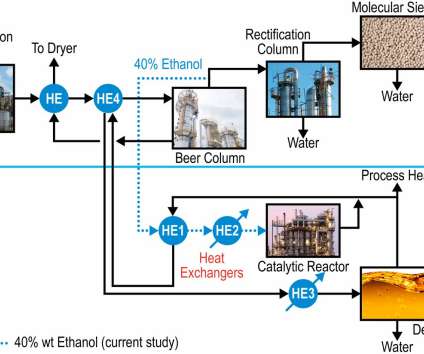VTT study concludes gasification-based pathways can deliver low-carbon fuels from biomass for about 1.90-2.65 US$/gallon
Green Car Congress
JULY 4, 2013
The horizontal red lines show the comparable price of gasoline (before tax, refining margin 0.3 $/gal, exchange rate: 1 € = 1.326 $) with crude oil prices 100 $/bbl and 150 $/bbl. Summary of levelized production cost estimates of fuel (LCOF) for the examined plant designs. Source: VTT. 0.7 €/liter (app.


























Let's personalize your content